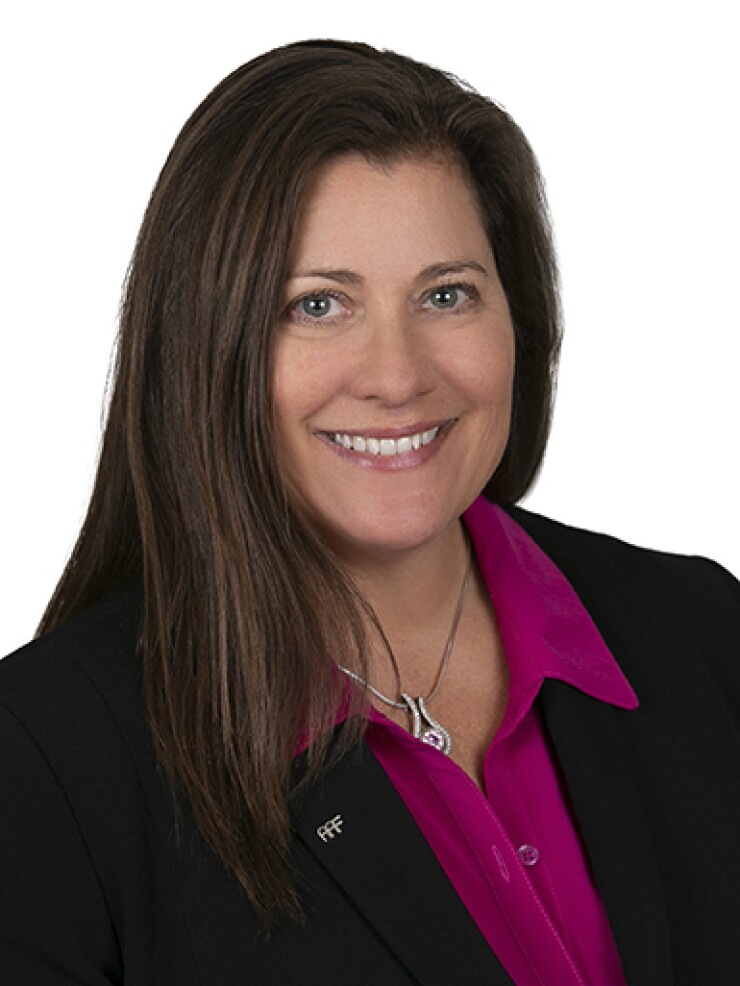Accounting’s top managing partners are doing what they can to ensure there will be new generations of people they can lead — and tap to succeed them — in the coming years.
For all eight of this year’s MP Elite honorees, the strategies for solving the pipeline problem fall into a few general categories. And they also span a timeline from immediate application to long-term planning.
As stated by Sikich CEO Christopher Geier: “To address the shortage of people entering the accounting field, the profession needs to undertake a comprehensive and forward-thinking approach. This strategy should not only tackle immediate perception issues but also lay the groundwork for long-term sustainability and appeal.”
Public perception
The MP Elite agree that a good start for the accounting profession is better branding.
For RKL CEO Edward Monborne, this translates into creating “compelling narratives and marketing communication efforts that shift perceptions of the old accounting model to the exciting possibilities that exist in today’s dynamic advisory environment.”
“The accounting profession faces a significant challenge in how it’s perceived, particularly by younger generations,” said Geier. “To combat this, we need to launch a multi-tiered education and awareness campaign.”
Geier’s proposed campaign includes two parts:
- Start early. “Introduce the exciting aspects of accounting careers to high school students. This could involve interactive workshops, guest speakers from diverse accounting backgrounds and hands-on projects that showcase the analytical and problem-solving nature of the profession.”
- Highlight diverse career paths. “Demonstrate that accounting is not just about numbers, but about strategic thinking, leadership, and driving business decisions. Showcase success stories of CPAs who have become CEOs, entrepreneurs and influential board members.”
Aaron Dawson, CEO of Opsahl Dawson & Co. Advisors, is also well aware his firm is on the front lines of combatting outdated notions of accountants.
“We believe that CPA firms have an image problem,” he explained. “There are several things that we’re doing to keep the image of public accounting enthusiastic.”
Among those is an involvement with the firm’s local colleges, including WSU Vancouver — Washington State University where firm members attend career fairs, speak at their classes, and invite students to the office to immerse them in the possibilities of an accounting career.
Closer partnerships
Dawson emphasized that the relationships with these educational institutions span longer than the duration of a career fair.
“We also make it a priority to stay connected with the faculty and the administration because we need to be well known not just at the student level, but at every level,” Dawson said. “That visibility is good not only for our firm but for our profession as a whole.”
His fellow MP Elite honorees agreed that educational partnerships are key to attracting future accountants.
“Partner with universities and colleges to offer programs that build a robust pipeline of candidates, such as the partnership we’ve fostered with several area colleges to offer onsite externships,” said Monborne.
Bartlett, Pringle & Wolf hosts a “Discover BPW” day for local college students majoring in economics and accounting, according to managing partner Eileen Sheridan. “This initiative allows us to connect with accounting students, explaining our work and generating enthusiasm for the field,” she said. “The day is filled with activities, community service, tours and interviews, making it engaging and informative for all involved.”
Additionally, Bartlett, Pringle & Wolf offers a comprehensive intern program for junior and senior students.
Al-Nesha Jones, founder at ASE Group, also fosters these early relationships.

tamara fleming photography
“I mentor graduate students in Montclair State University’s accounting program, providing essential guidance for their transition into the profession,” she explained. “Additionally, we offer paid internships to give students practical, hands-on experience.”
Geier is also a proponent of university involvement: “Work closely with accounting programs to ensure curricula are aligned with industry needs and showcase emerging specialties like data analytics, sustainability accounting and cybersecurity risk management.”
More (career and licensure) flexibility
Speaking of specialties, the MP Elite stressed the importance of publicizing the diverse career paths available in accounting.
“Be open to creating career paths in adjacent professional areas like data analytics, cybersecurity, M&A and more,” Monborne advised firms.
Jay Rammes, managing director at Barnes Dennig, would agree, as a proponent of “investing in [talent] and showing them a path that’s challenging and rewarding. And as the firm grows, we’re continually creating new career paths and new opportunities for growth.”
Firms should also promote the aspects of accounting that go beyond career trajectories, according to Geier, who listed a few areas younger employees prioritize — so firms should, too:
- Industry impact and purpose, as “today’s professionals, particularly younger generations, seek careers with meaning and impact.”
- Economic influence: “Clearly articulate how accounting plays a crucial role in local, national, and global economies, driving growth and stability.”
- Social responsibility.
- Personal values.
In addition to firms offering more options in professional development, many MP Elite agreed the profession as a whole could follow suit by loosening up CPA exam requirements.
“Revise the 150-hour requirement,” urged Geier. “Consider replacing part of this with relevant work experience, allowing for a more practical and appealing route to qualification.”
Additionally, he recommended integrating technology and AI into the exam.
Technology investment
Technology as a whole was oft-mentioned by the MP Elite as a big attraction for the next generation.
Carla McCall, who in addition to being managing partner at AAFCPAs is the chair of the American Institute of CPAs, advocates for technology integration and the evolution of the accounting business model to better promote accounting careers.
“We are super excited about how automation is changing our industry, and it can’t come fast enough,” says Carla. “This is such an exciting time to be in our profession, and we hope our young professionals realize the amazing opportunities there are to be a part of this shift, which is creating even more diversity of work and leadership opportunities.”
(See what the MP Elite
Monborne urges firms to “invest in innovation and technology to drive better efficiency by leveraging AI, data analytics and blockchain.”
And Geier advocates for firms to “provide ongoing training in emerging technologies and data analysis techniques to keep the workforce at the cutting edge.” They should also better showcase their innovation, he added: “Highlight how technology is transforming the role of accountants from number crunchers to strategic advisors and decision-makers.”
Cultural fit
Of course, as any good leader of any good firm would say, culture is of paramount importance to attracting the right people. And integral to any great culture is an environment of inclusion.

Photo by NicoleConnolly.com
In her inaugural address as incoming AICPA chair, McCall emphasized the importance of diversity, equity, inclusion and belonging as key elements to growing the pipeline.
These efforts are part of McCall’s “broader goal to push the needle of progress and continue the work of past AICPA Chairs in driving diversity and inclusion within the profession.”
This should begin early, according to Monborne, who advises: “Invest in inclusive recruiting practices that build pipelines within underrepresented groups.”
“Actively engage with minority schools and underrepresented communities to showcase accounting as a viable and rewarding career path,” said Geier.
For Jones, inclusivity is intertwined with flexibility.
“The accounting profession should address the pipeline problem by focusing on mentorship, flexible career paths and inclusivity,” she said. “Engaging students early through educational partnerships and offering practical, real-world training can spark interest in the field. Creating flexible, remote work opportunities and fostering inclusive environments will make accounting careers more attractive to a diverse range of individuals. Actively working to eliminate the stereotype that our industry has been plagued by for decades (that successful accountants are burned out accountants) requires a collective effort and can be achieved through support networks, mentorship and even public awareness campaigns to showcase our impact on the economy as a whole, and how rewarding and versatile an accounting career can be.”
Rammes also emphasized flexibility. “It’s understanding what new generations of talent are looking for in their careers and meeting them where they are,” he explained. “Flexibility is huge, and by that I don’t mean remote work though that’s part of it. Talent just entering the field wants to be in the office at least part of the time, learning and building relationships, and we’re leaning into that while emphasizing true flexibility that enables people to effectively balance their personal and professional lives with reduced stress and greater peace of mind.”
At ASE Group, Jones, like her fellow 2024 MP Elite, practices what she preaches: “We intentionally create a desirable, people-first work environment with remote work options, a year-round four-day work week, and comprehensive benefits like 401(k) matching, bonuses and paid time off for all team members.”
Even with all their proposed ideas, the MP Elite acknowledged the pipeline problem remains an urgent one without simple solutions.
“The pipeline is such a systemic problem, and I don’t know that we have a solution for it as an industry yet,” said Rammes. “While we work together to solve it — and we have a long history of solving the toughest challenges — we have to keep moving forward, testing new ideas and scaling what works.”
Credit: Source link











